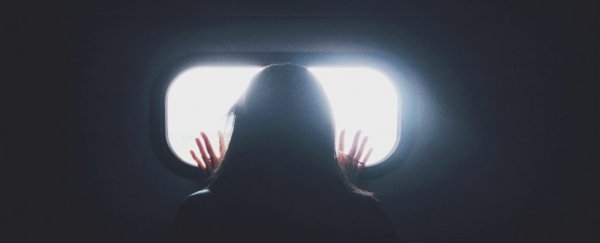If you're feeling stressed, uncertain about what the future holds, or even physically unsafe, try not to panic – you're definitely not alone.
New survey results show Americans' anxiety levels experienced a sharp increase in the past year, with almost 40 percent of respondents saying they felt more anxious than they did a year ago.
That's a pretty big spike – following on the heels of a 36 percent jump between 2016 and 2017 – and it means this year's national, averaged 'anxiety score' has tipped over halfway on a 100-point scale: it's now sitting at 51, with a five-point increase since 2017.
"This poll shows US adults are increasingly anxious particularly about health, safety, and finances," says American Psychiatry Association president Anita Everett, whose organisation sponsored the survey.
"That increased stress and anxiety can significantly impact many aspects of people's lives, including their mental health, and it can affect families."
This year Americans reported feeling more anxious across the five key areas of the poll – health, safety, finances, politics, and relationships.
Anxiety over finances saw the greatest increase since 2017 levels, with people concerned about having enough money to pay bills and other expenses.
But that's not what worries Americans the most.
The two things causing the most anxiety to people are health (with 68 percent of respondents feeling extreme or somewhat anxious), and keeping themselves or their family safe (68 percent), with finance a close third at 67 percent.
While anxiety over politics and its impacts on daily life is less common, it's still a source of stress for more than half of Americans (56 percent of respondents).
Not that these anxieties can really be broken down into neat, isolated chambers.
Arguably, these fears are often tied to one another, thanks in no small part to today's 24/7 news cycle and the near-constant digital and social connectivity that frames modern life.
"They seem to parallel the different areas of tension that currently dominate political news and conversation," psychiatrist and stress researcher Eric Bui from Massachusetts General Hospital told the Boston Herald.
"It seems as if there may be a vicious cycle fuelled by these fears, which may drive rigid political stances and in turn fuel further fear."
The responses, collected from a nationally representative survey of more than 2,000 adults over March and April, didn't convey a lot of good news about people's mental states.
Increases in anxiety were common to both men and women, and were seen across people of different race/ethnicity and of different ages. While millennials are more anxious than older people, baby boomers saw the biggest age-related spike in anxiety, with a seven-point jump over 2017 figures.
And it seems we can't even find solace in family, friends and co-workers – almost half (48 percent) of those surveyed reported feeling anxiety about their relationships.
Sadly, there's no quick fix for any of this, of course. And while Everett counsels the importance of attempts to reduce stress – such as regular exercise, relaxation, healthy eating, and time with friends and family – it's clear that external factors outside people's control are a big contributor to this surge in negative feeling.
Whether it's political upheaval, physical vulnerability, or the ever-clearer prospects of a looming environmental catastrophe, there are just so many factors that can induce our apprehension, and there's no easy off switch we can reach for.
"We are wired to sense and react to threat," psychiatrist John Sargent from Tufts Medical Centre told the Boston Herald.
"These are things that, in fact, you can't control by an immediate action."
But what is most striking is the single highest source of extreme anxiety in the 2018 results.
A stunning 36 percent of respondents reported that they felt extremely anxious about keeping themselves or their family safe.
When more than one in three people say they feel that way, you know there's a lot of work to do.
The survey results are available at the APA's website.
